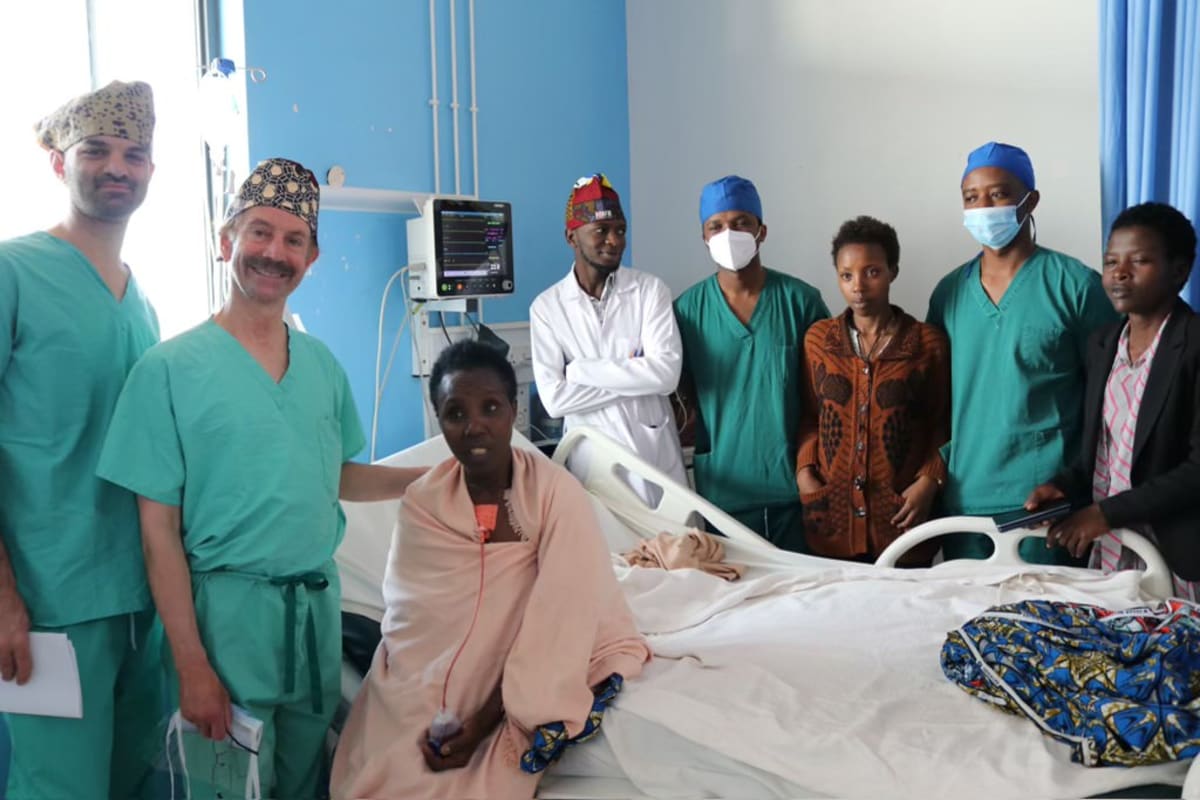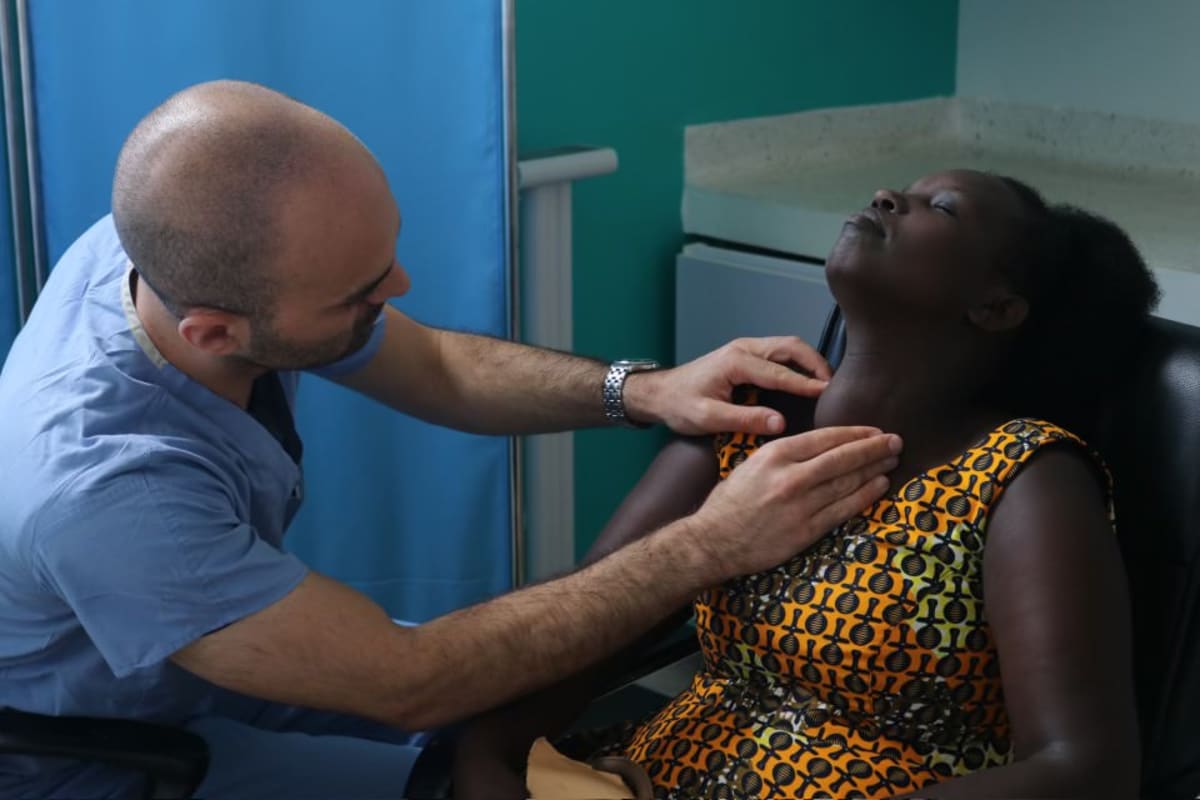I am a surgical Physician Assistant and will be traveling to Rwanda with Dr. Fletcher Starnes, who is an endocrine surgeon, and a small team of US healthcare professionals. We will be focusing on thyroid goiter surgery (partial lobectomy) for patients who are symptomatic and who are otherwise unable to afford the procedure. We have done a similar trip once before through Medical Missions for Children (MMFC) and it was a success, with 26 surgeries performed for people who desperately needed the procedure and would not have been able to get it otherwise. Here is a blog post about our previous trip: https://www.mmfc.org/2019/02/25/kigali-rwanda-january-2019/. All of the procedures went well, without complications, and we stayed in touch with local physicians in the post-operative period to ensure that patients were receiving proper care.
This trip to Rwanda will also be focused on thyroid goiter surgery (partial lobectomy) for symptomatic patients who cannot afford to get the procedure. We have secured space in an operating room at Nyarugenge District Hospital. The hospital will be donating the space. We are working with US-based hospitals and contacts to secure the necessary equipment (some will be donated; others will be reusable).
We plan to do 1.5 days of screening, followed by 4.5 days of surgery along with daily rounds and post-operative care (we will stay past the surgery days to provide post-op care). We have secured a team of US healthcare professionals, but we also plan to work with local healthcare professionals. Vianney Ruhumuliza is an RN from Rwanda who currently works in the US. He will be helping to coordinate the trip. Part of the trip will also be focused on teaching the local medical students. They are excited to work with us!
The patients we serve likely would never be able to get their procedure if we were not there to perform it free of charge. Because of this, patients tend to be extremely symptomatic, as they have had the disease for a long time. Many of them have goiters so large that they are having trouble breathing, sleeping, and/or swallowing food. Disease disproportionally affects women.
Most of our patients mirror the population of Rwanda. They have low income, and most of them are sustenance farmers. This makes the procedure even more important as it can severely impact their ability to work.
With 4 full days of surgery, we will be able to schedule 4-5 surgeries per day, so we should be able to complete between 16-20 procedures. We will select patients based on need, so they will all be highly symptomatic patients (who have had symptoms for a long time), who otherwise would not be able to get the procedure. In the past, patients have traveled many hours, sometimes by motorbike, to see us and be screened for surgery. They do not have any other options. Unfortunately, the limit is our capacity and not the demand for this procedure in Rwanda. We were planning to go in 2020 (following our 2019 trip) but could not be due to travel restrictions. I’m sure this affected other medical mission trips to the area as well, further exacerbating the need for us to come and help.






We were honored to work with the staff of a local hospital who welcomed us with open arms. We performed dozens of surgeries for the treatment of thyroid conditions, hernias, neck tumors (e.g. Thyroglossal duct cysts) and various other conditions. We set up and staffed a post-op and recovery room. We partnered with the Emergency Department to demonstrate, teach, and perform life and limb-saving techniques. We were blessed by the assistance of several Rwandan medical students. At our invitation, the students helped with translation, triage, and were given the opportunity to scrub in so that they could someday be prepared to perform these procedures in our absence.
We treated patients who desperately needed our services, many were on waitlists or trying other ways to get the procedures they needed. In addition to the dozens of pre-screened and scheduled thyroid surgeries, more than 115 individuals arrived at NDH as word spread about the work that we were doing. Unfortunately, we had to hold our resolve and not overstep our capacity to do well that which we had come to do.
The Minister of Health was contacted, and plans were drafted for a future mission when we will return to continue the work that we began. The need for additional trained professionals, and the resources required to support them, was clear to everyone of us on the ground.